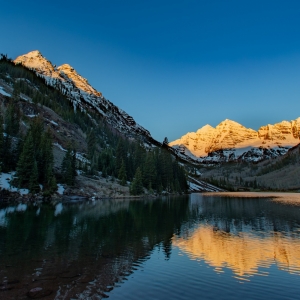The Stream, September 1, 2021: Climate Change Could Pressure Israel and Jordan Into Water Cooperation
YOUR GLOBAL RUNDOWN
- Dwindling water sources in the Middle East could prompt cooperation between Israel and Jordan.
- Meteorologists in Australia forecast above-average rainfall throughout portions of the country this spring.
- Nearly 170 public water systems in Louisiana are experiencing water outages after Hurricane Ida.
- A state investigation finds that two wastewater treatment plants in Baltimore, Maryland, were discharging millions of gallons of partially treated sewage per day into tributaries of the Chesapeake Bay.
A judge restores previous protections to U.S. waterways.
“The court recognized that the serious legal and scientific errors of the Dirty Water Rule were causing irreparable damage to our nation’s waters and would continue to do so unless that Rule was vacated.” – Janette Brimmer, an attorney for Earthjustice. A U.S. court restored previous protections to waterways across the country after changes to the Navigable Waters rule last year by the Trump administration limited the number of waterways that could be federally protected. Reuters reports that an Arizona district court judge said leaving the regulations in place could lead to “serious environmental harm.” The move is a victory for the six federally recognized Native American tribes who sued the U.S. Environmental Protection Agency and the Army Corps of Engineers for failing to protect their waterways.
- Why it matters: As Donald Trump entered office, he proclaimed himself a builder and a dealmaker and quipped in interviews about his desire for crystal clear water. There was hope, at least in the beginning, for common ground. Yet, as election season was ramping up late last year, critics and analysts said that did not happen. “President Trump loves to say that he wants crystal clear water,” Bob Irvin, president and chief executive of the conservation group American Rivers, told Circle of Blue in October. “But his administration has adopted policies that will result in dirtier water across the country.”
IN RECENT WATER NEWS
In Case You Missed It:
HotSpots H2O: Flash Floods and Landslides Devastate Western Venezuela – Torrential rain fell relentlessly this past week in western Venezuela.
What’s Up With Water – August 30, 2021 – This week’s episode covers plans to build seawater desalination plants in Egypt, a potential storage site for nuclear waste near Lake Huron in Canada, and new research that found that climate change is behind the intensity of deadly storms that hit Germany and Belgium last month.
Australia Prepares For Wet Spring
Australia’s Bureau of Meteorology is predicting above-average rainfall for most of the southern and eastern regions of the country this spring, according to The Sydney Morning Herald. Dr. Andrew Watkins, head of the bureau’s operational climate services, said damp valleys, wet soils and high stream flows could lead to more flooding. “The main thing we’re watching is we have high rivers and full catchments,” Watkins said.
TODAY’S TOP WATER STORIES, TOLD IN NUMBERS
168 WATER OUTAGES
As of Tuesday morning, a total of 168 public water systems in Louisiana were experiencing outages. This includes two districts in Jefferson Parish serving a total of 432,552 customers.
295 ACRES
Two wastewater treatment plants in Baltimore, Maryland, have been illegally discharging millions of gallons of sewage a day into the Patapsco and Back rivers, tributaries of the Chesapeake Bay. The Baltimore Sun reports that the amount being discharged per day was enough to fill a 295-acre wading pool. State inspections in May and June revealed higher than acceptable levels of harmful bacteria, nitrogen and phosphorus emitted from the two plants.
ON THE RADAR
Dwindling water sources in the Middle East could prompt cooperation between Israel and Jordan amid technological advances and climate pressures. Water cooperation between the two countries predates a 1994 peace deal, according to Al Jazeera. Duke University professor Erika Weinthal said this is quite common, although warnings about “water wars” in the Middle East tell a different story. “If you look at the data,” she said, “you see more cooperation over water than conflict, and where there is conflict, it is usually verbal.”
Jane is a Communications Associate for Circle of Blue. She writes The Stream and has covered domestic and international water issues for Circle of Blue. She is a recent graduate of Grand Valley State University, where she studied Multimedia Journalism and Women, Gender and Sexuality Studies. During her time at Grand Valley, she was the host of the Community Service Learning Center podcast Be the Change. Currently based in Grand Rapids, Michigan, Jane enjoys listening to music, reading and spending time outdoors.






Leave a Reply
Want to join the discussion?Feel free to contribute!